The Essential Retail POS System: Why Retailers Need a Point of Sale Solution
Learn why a reliable POS system is crucial for retail success, helping manage sales, track inventory, and enhance customer experience. Discover key features and benefits to streamline operations and boost growth in a competitive market.
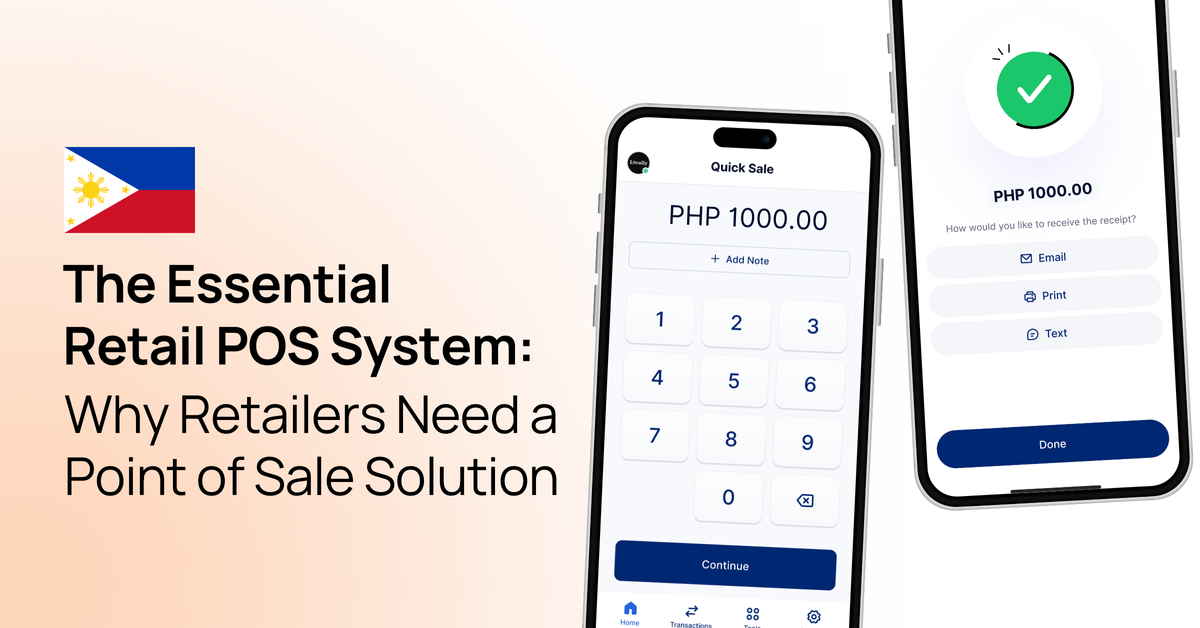

The retail landscape in the Philippines is constantly evolving, making it essential for businesses to have a reliable Point-of-Sale (POS) system. A good POS system does more than just process payments—it helps you manage sales, track inventory, and streamline daily operations.
For small and medium-sized businesses, a well-chosen POS system can make transactions faster and improve customer experience, leading to stronger customer loyalty.
HitPay, an all-in-one payment platform trusted by over 15,000 businesses globally, offers a comprehensive solution that unifies online, in-store, and B2B payments into a single system.
In this article, we’ll explore why POS systems are crucial for retail businesses, dive into their key features, and explain how they can help you run your business more efficiently.
Key Takeaways
- Retail POS systems are crucial for modern retail operations.
- A comprehensive Point of Sale solution streamlines sales and inventory management.
- Choosing the right POS system can significantly improve customer loyalty.
- Effective data analytics from POS systems inform better business decisions.
- Investing in a good POS enhances operational efficiency.
What Is a POS System and Why Do Retailers Need It?
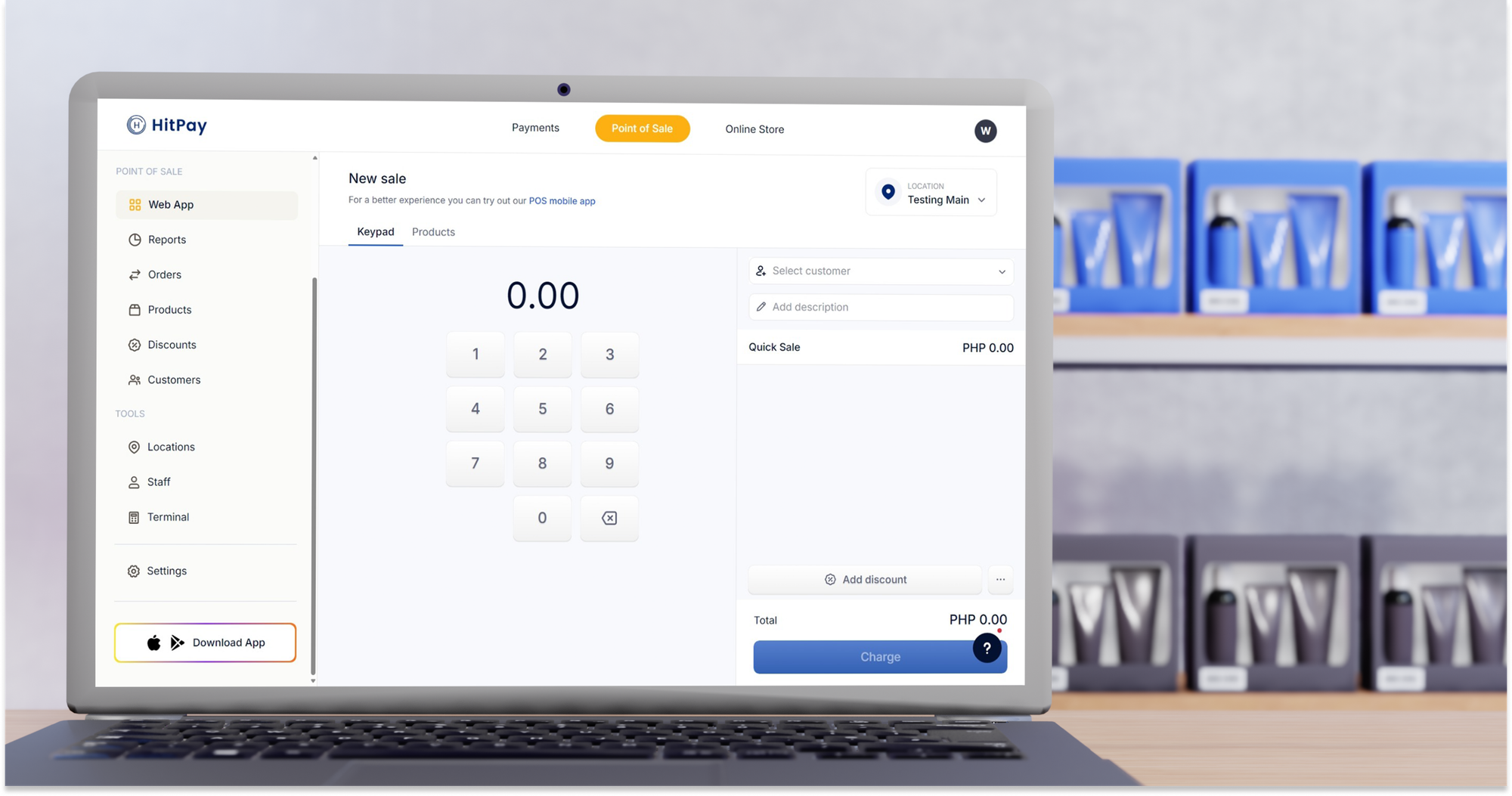
A POS (point of sale system) is key to retail success, blending technology with business needs. It helps manage transactions, track inventory, and keep customer records. This system has both hardware and software parts designed for smooth transactions and efficient inventory tracking.
Understanding the Basics of a Point of Sale System
A POS system simplifies sales processing and helps manage stock levels effectively. It typically includes a cash register, barcode scanner, receipt printer, and a screen for entering sales details. The system automatically records each sale, updating your inventory in real-time so you always know what’s in stock.
In addition to tracking sales, a POS system provides important data on how your business is performing, such as which products are selling the most and at what times. Automating these processes is key—34% of small and medium sized businesses report that automating tasks like data entry helps reduce errors.
This automation lowers the risk of mistakes, makes your sales more accurate, and saves time so you can focus on other important parts of your business.
How POS Systems Help Retailers Streamline Operations
POS systems are essential for retailers. They automate tasks like inventory and sales tracking. This lets retailers focus on serving customers and growing their business. The main benefits are:
- Improved transaction speed: A POS system processes payments quickly, reducing wait times for customers and speeding up checkout lines.
- Real-time inventory tracking: The system updates stock levels instantly with each sale, helping businesses avoid running out of popular items and reducing overstock.
- Enhanced customer insights through purchase history: POS systems track customer purchases, allowing businesses to offer personalised promotions and improve customer relationships.
- Automated reporting for financial tracking: Detailed sales and financial reports are generated automatically, making it easier to monitor business performance and plan for future growth.
Having a strong POS system puts you ahead in efficiency and customer satisfaction in the retail world.
Key Features of a Good POS for Retailers
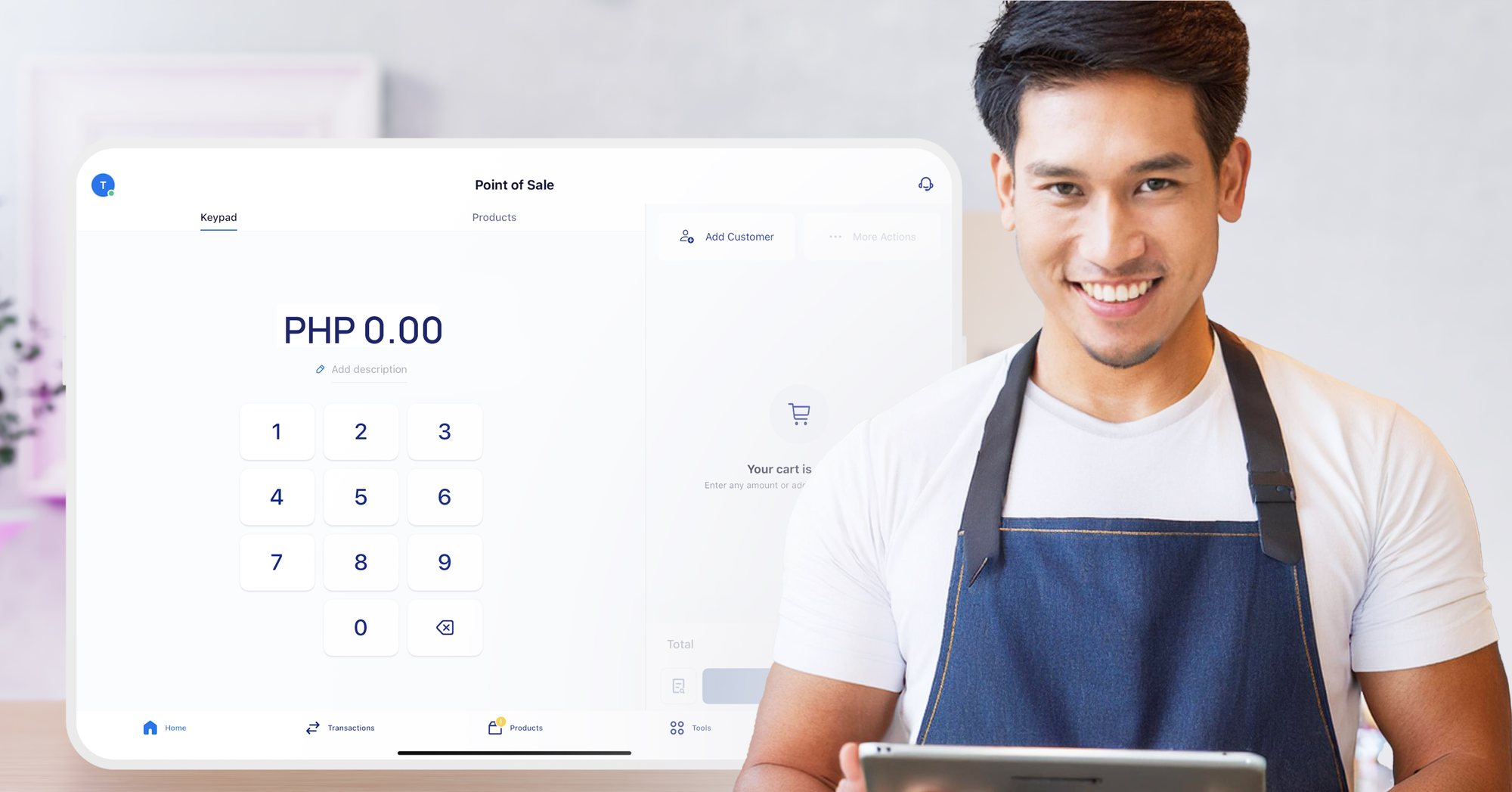
A great POS system needs essential features designed for retail businesses. Understanding what makes a good one helps you choose the right fit.
- Inventory Management: A solid system helps you easily track stock levels, so you can meet customer demand without overstocking.
- Customer Management: Keeping customer information and purchase history on hand allows you to offer personalised service and makes targeted marketing simpler.
- Employee Management: POS systems make it easy to monitor employee sales, schedules, and performance, helping you manage your team more effectively.
- Hardware Compatibility: Seamless integration with devices like receipt printers and barcode scanners is crucial for smooth sales operations.
- Mobile Payment Acceptance: With Apple Pay making up 5% of global card payments, being able to accept mobile payments like Apple Pay and Google Pay is essential for meeting customer preferences and staying current with payment trends.
Adding these features to your POS system boosts its capabilities. It makes managing retail transactions better. By using these key features, retailers can make their operations more efficient. They can also improve customer experiences and increase sales.
How to Choose the Best POS System for Your Retail Business?
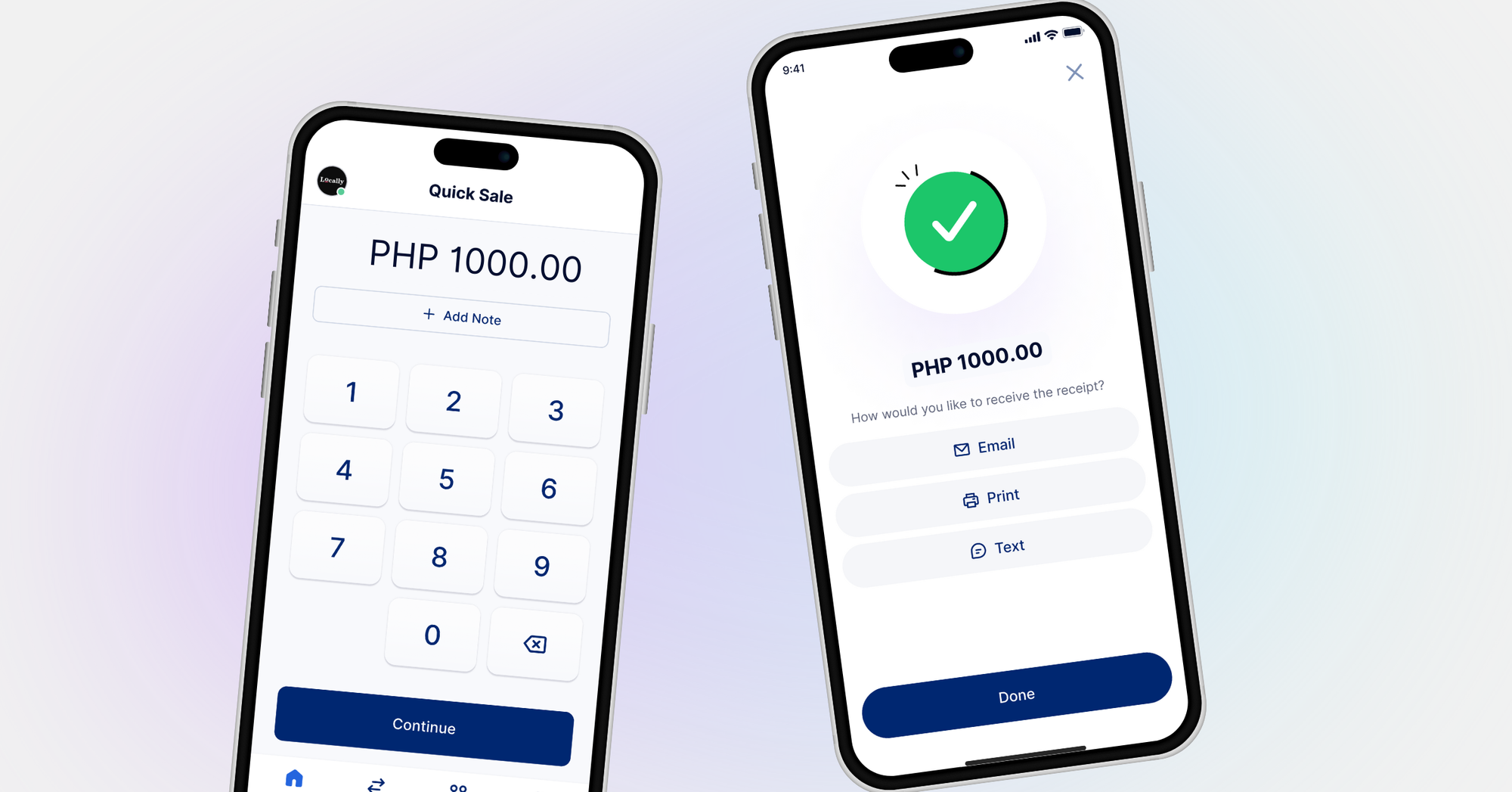
Choosing the right POS system for your retail business is important. You need to think about your business size, what you need, and your budget. Knowing how to pick the right POS can make things easier and help you find the best one for you.
Look for a system that can grow with your business, offering features you can add as your needs change. Additionally, consider the ease of use and customer support available, as these factors can make a big difference in your daily operations.
Factors to Consider When Choosing a Type of POS System
Think about these things when looking at different POS systems:
- Business Size: Check if your business is small, medium, or large. This will help you decide what system is best.
- Retail Environment: Decide if you need a mobile POS for moving around or a traditional one for a store.
- Desired Features: Choose features like inventory management, reporting, and tools for customer interaction that fit your business.
- Budget: Set a budget early to narrow down your options to what you can afford.
Best Practices for Selecting a Retail POS System
Here are some tips to help you choose wisely:
- Read Customer Reviews: Look at what real users say about the systems you're interested in.
- Request Demos: Use free trials or demos to see how the systems work in real situations.
- Check Hardware Compatibility: Make sure the system works well with your current hardware or if you need to upgrade.
Thinking about these things when picking a POS system will help you work better and make customers happier. Using these tips can help you find a system that fits your business perfectly.
What Are the Benefits of Using a Retail POS System?

Retail POS systems offer many benefits to your business. They streamline daily operations by speeding up transactions, reducing checkout times, and helping your staff serve customers faster.
These systems also automate tasks like tracking inventory, managing sales, and generating reports, which saves time and reduces the chance of human errors.
Enhancing Customer Experience with a POS System
Using a retail POS can make customers happier by improving their shopping experience. It speeds up transactions, reducing long wait times at the checkout, so customers can get what they need more quickly and with less hassle.This is crucial, as 50% of customers are less likely to spend money with a business that takes longer to respond than they expect.
A POS system also collects customer data, like purchase history and preferences, allowing your team to offer personalised service, such as recommending products or providing special offers based on their interests.
This personal touch builds customer loyalty and keeps them coming back, leading to higher satisfaction and more repeat business. By making both shopping and service more efficient, a retail POS can greatly enhance customer happiness.
Managing Inventory Efficiently with POS Software
POS systems are excellent for managing inventory because they give you real-time updates on stock levels. This means you always know what’s available and can quickly spot when an item is running low.
By keeping track of stock in real-time, you can avoid the problem of running out of popular products and ensure you always have what customers are looking for.
They can send alerts when it’s time to reorder, helping you stay on top of your inventory without overstocking or understocking. This keeps your store running smoothly, reduces waste, and makes sure your shelves are filled with the right products at the right time.
Overall, it helps you meet customer demand while managing costs effectively.
Leveraging Analytics for Better Business Decisions
Another big plus of POS systems is their analytics. You can see sales trends, what customers like, and how your inventory is doing. This info helps you make smart choices for your business.
It leads to better profits and growth strategies. You can focus on what works best for your store.
How Does a Retail POS System Improve the Checkout Process?
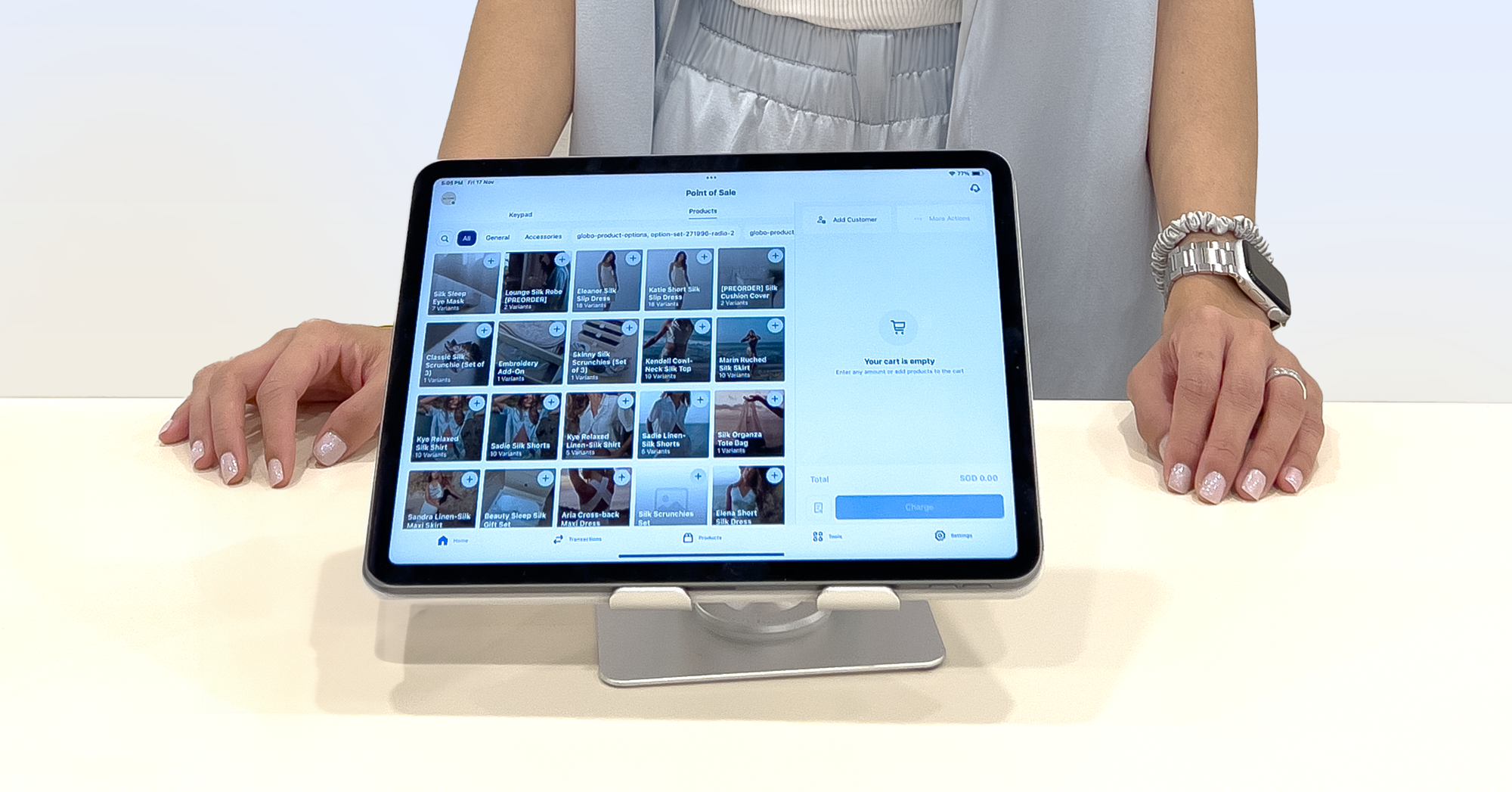
A retail POS system is key to making checkout better for customers. It uses new tech to make transactions faster and boost satisfaction. By improving the checkout, stores can cut down on wait times and make things run smoother.
Streamlining the Checkout Experience for Customers
A good POS system makes checkout more efficient. This means customers get served quicker, reducing the chance of long lines.
Two-thirds of shoppers expect checkout to take 4 minutes or less, and many (28%) expect it to be done in just two minutes. A fast and reliable POS system is key to meeting these expectations.
Quick service makes shopping smoother and keeps customers coming back, improving overall satisfaction and loyalty. By speeding up transactions and minimising wait times, a well-chosen POS system can enhance the overall shopping experience and give your business a competitive edge.
Mobile POS Systems and Their Impact on Retail Checkout
Mobile POS systems have greatly improved retail by making the shopping experience more flexible and convenient. With mobile POS, sales staff can take payments from anywhere in the store, allowing them to assist customers on the spot without the need to wait in line at a traditional checkout.
This leads to faster service and a more personalised shopping experience, as staff can help customers find what they need and complete the sale right there.
Integrating Loyalty Programs into the Checkout Process
Adding loyalty programs to your POS system is a big win. You can give rewards to regular customers right at checkout, making them want to spend more.
In fact, 50% of consumers say their primary reason for joining a loyalty program is to earn rewards on everyday purchases. By offering points, discounts, or special perks, you make customers feel valued, which encourages them to keep coming back. This builds loyalty and gets customers to buy more often.
When customers feel appreciated and rewarded, they’re more likely to choose your store over competitors, leading to stronger relationships and increased sales.
What Role Does a POS System Play in Omnichannel Retailing?

A POS system is key for retailers wanting to excel in omnichannel retailing. It makes shopping smooth across online and offline channels. With it, managing stock and customer info becomes easier, boosting efficiency.
Creating a Seamless Shopping Experience Across Channels
- Omnichannel retailing aims for a unified shopping experience.
- A strong POS system links all sales channels, allowing customers to shop easily both in-store and online.
- This builds loyalty as customers enjoy convenient access to products across platforms.
How POS Systems Support In-Store and Online Sales
- POS systems synchronise online and in-store sales, keeping inventory and sales data accurate.
- They help avoid overselling by maintaining up-to-date product information.
- POS systems support services like “buy online, pick up in-store” (BOPIS), catering to hybrid shoppers.
Utilising Customer Purchase History for Better Targeting
- POS systems provide valuable insights into customer buying habits.
- This data helps businesses tailor marketing strategies and offers to individual customer preferences.
What Are the Latest Trends in Retail POS Technology?
The retail world is changing fast, thanks to new POS technology trends. These changes are making checkout smoother and more efficient.
Now, POS systems use cloud-based solutions, letting you access data from anywhere and cutting down on costs. This means you can make better decisions with real-time analytics, creating bigger wins for your business.
Innovations in POS Software for Retailers
Customising and integrating new tech is key to improving your retail operations. In fact, 85% of new businesses report that technology platforms played a crucial role in getting their business up and running.
Modern POS systems use artificial intelligence for better analytics and machine learning for smarter inventory management. This technology helps predict what you’ll need in stock and makes shopping more personal for customers.
Staying updated with these advancements allows your business to remain competitive and adapt quickly in a fast-paced market.
Future of POS Terminals in the Retail Industry
Looking ahead, POS terminals will become even more versatile and powerful. They will easily connect with other retail technologies, making the shopping experience smoother both in-store and online.
For example, future POS systems will integrate better with e-commerce platforms, allowing businesses to manage online and physical store sales from one place.
These advanced systems will also support a wider range of business models, from traditional retail to pop-up shops and even subscription-based services.
As POS technology evolves, it will improve how businesses manage inventory, track customer preferences, and offer personalised service. Overall, this will lead to better customer experiences, more efficient operations, and increased sales for businesses.
Get Started With HitPay’s Secure POS System Software
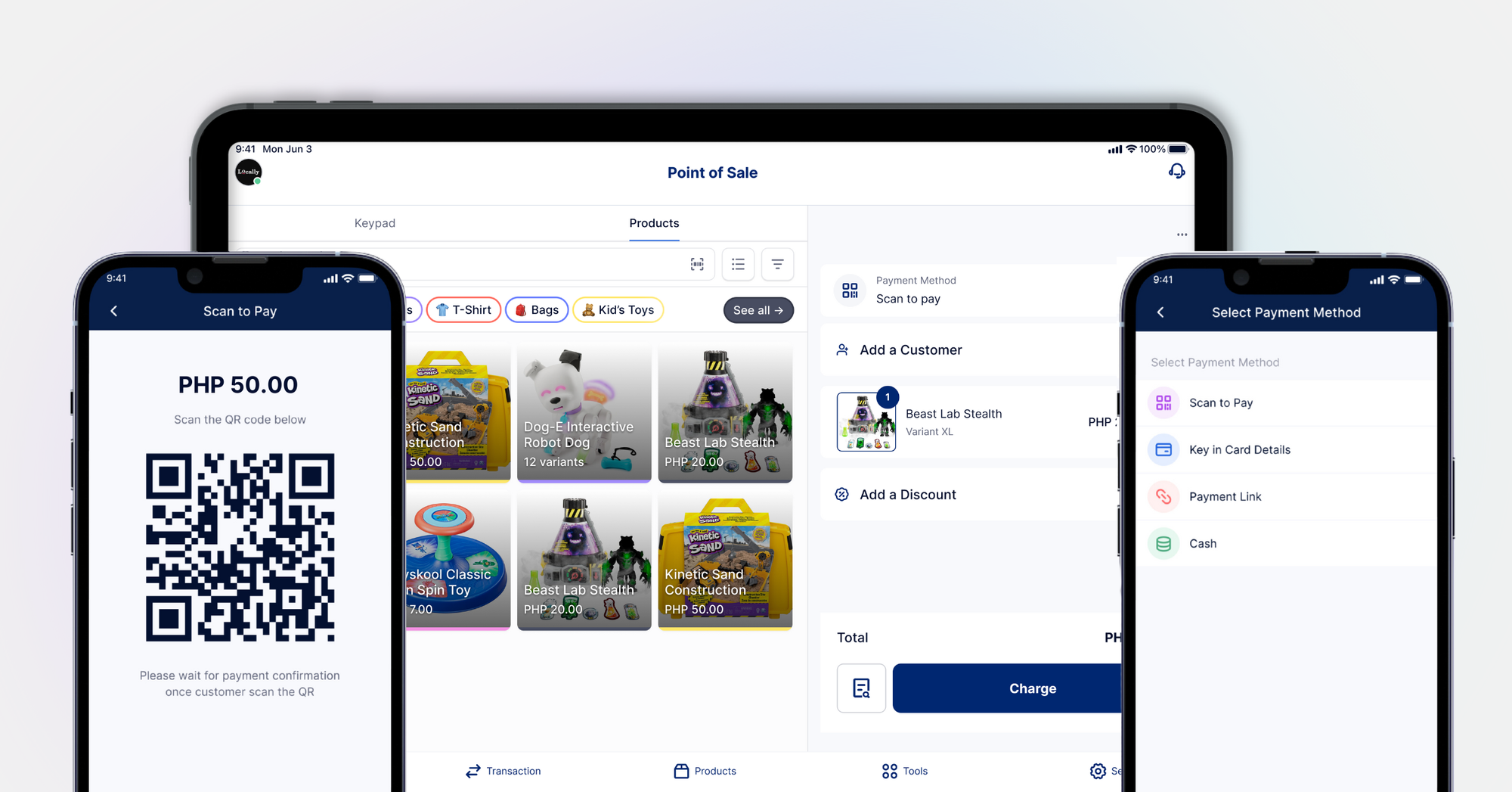
A good POS system helps retailers manage sales, track inventory, and deliver a seamless shopping experience across all channels. By automating essential tasks, offering real-time data insights, and improving customer interactions, a POS system plays a critical role in driving efficiency and growth for businesses.
As retail trends continue to shift toward omnichannel experiences and advanced technology, choosing the right POS system can position your business for long-term success.
Whether you’re a small store or a growing enterprise, investing in a modern POS system like HitPay can give you the tools needed to stay competitive and meet customer demands in a rapidly changing market.
Experience the simplicity and efficiency of HitPay's POS software with no subscription fees. Take advantage of our advanced features at no cost, and streamline your business operations effortlessly.
If you're a customer who has questions about paying with HitPay, feel free to contact us on our website.
Frequently Asked Questions About POS Systems
Why do retailers in the Philippines need a good POS system?
In the Philippines, a strong POS system is key for efficient transactions and better customer service. It helps businesses grow by improving operations and building customer loyalty.
What key features should I look for in a retail POS system?
Look for inventory and customer management tools, employee management, and compatibility with printers and scanners. Also, ensure it accepts mobile payments.
How can a retail POS system enhance customer experience?
It makes transactions faster and wait times shorter. It also offers personalised service with customer data, making customers happier and more loyal.
What factors should I consider when choosing a POS system for my business?
Think about your retail setting, business size, needed features, and budget. Decide if a mobile or e-commerce POS fits your operations best.
What are the benefits of using a retail POS system?
It boosts customer experience, manages inventory well, and gives insights into sales and customer habits. This helps you make smart business choices.



